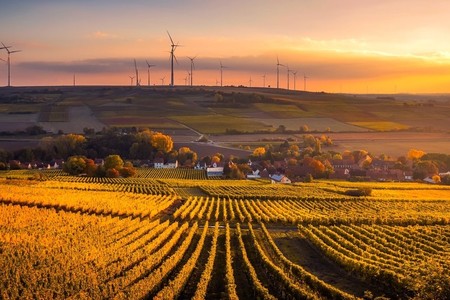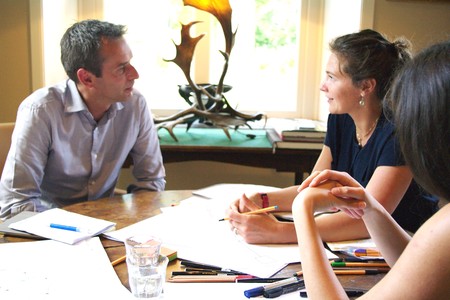Systems thinking is this generation's lifebuoy. It's the only way to accurately observe our world, assess its complexity, and design and implement sustainable solutions. Our long-term survival depends upon it.
This article is part one of a two-part series that explores some of the world's greatest systems thinkers of modern times. It highlights what makes them so good and how they continue to inspire us in our work as system analysts and to improve our systems dynamics tools in the SiD omnibus book.
By Tom Bosschaert and Mark Ratcliff

What is systems thinking and why it's important
Systems are everywhere and come in many forms and scales. A system can refer to a government, business, or supply chain. It can also be an object, such as a laptop computer or an automobile. Systems can also be more prominent concepts like a planet, a national park, a city, public transport network, and down to a small garden pond.
In short, "systems thinking" is about recognizing a set of factors and interactions within these defined systems and their effects on one another. Approaching design and development from this angle provides accurate assessments of complex realities and makes it easier to foresee the outcomes of natural behaviors and modifications.
As our world faces increasingly interrelated challenges, systems-thinking arises as one the most effective strategies for finding suitable and sustainable solutions.
People have been observing systems for eons - Thomas Malthus and his theory of population, Voltaire's philosophical musings, and Isaac Newton's "three laws of motion" are perhaps the most well-known examples. However, over the last 100 years, "systems thinking" has emerged as a stand-alone and recognized science.
Systems thinkers are as diverse as the systems that make up the world around us and can't be pigeonholed into any specific field. Despite this, it takes a particular person to excel . The following are some of the most remarkable in contemporary times that we take inspiration from in our daily systems thinking projects at Except.
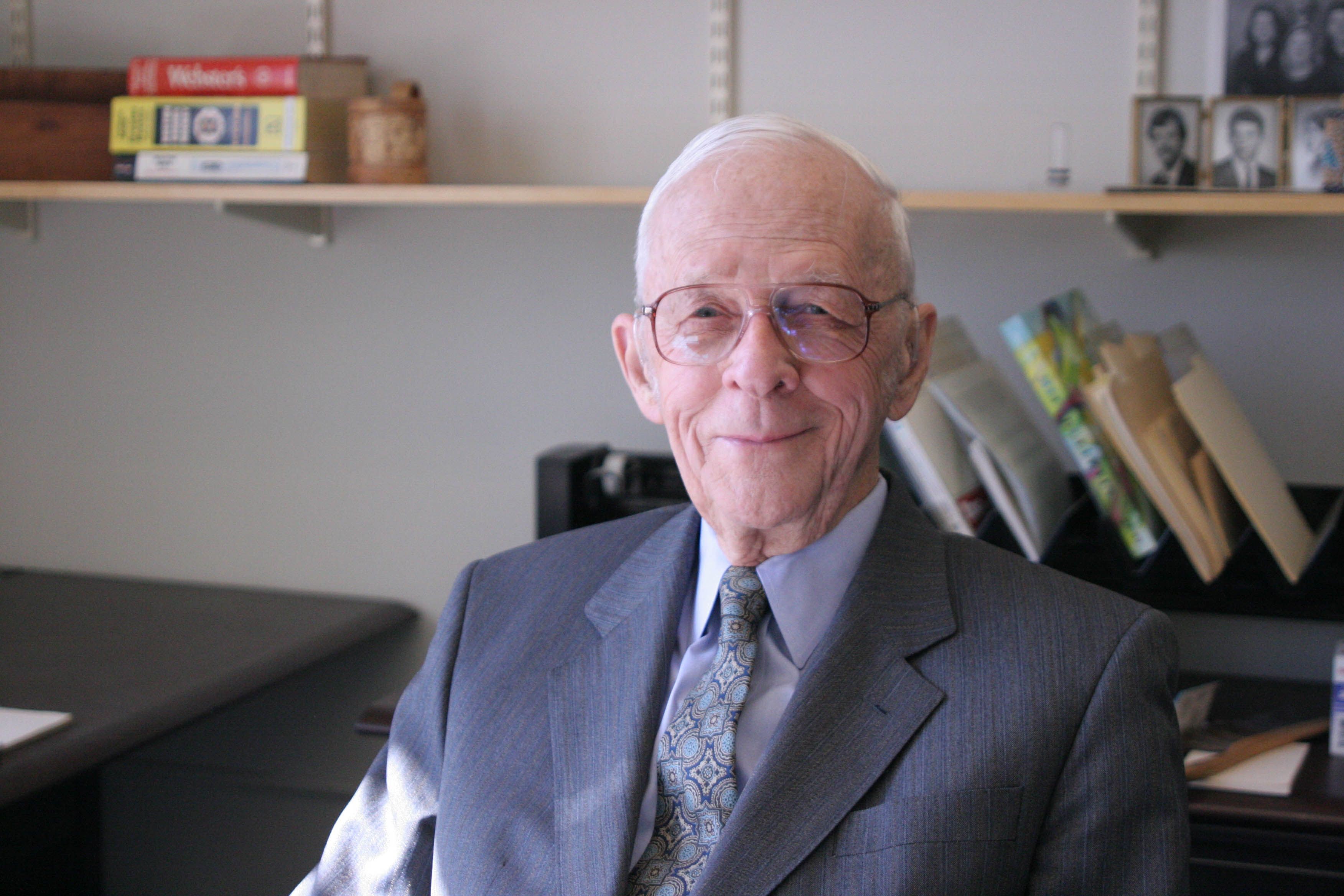
Jay W. Forrester (1918 - 2016)
Computer Engineering, Systems Dynamics, and Industrial Management
It's fitting to start this article by introducing Jay W. Forrester, the man responsible for promoting systems thinking and popularizing it as a field of study. He is also credited with inventing random-access memory (RAM), a device used to store information in almost every computer.
To be exact, Forrester was known for developing the related science of systems dynamics - a field that combines theory, specific methods, and philosophy to explain cause and reaction and how and why systems change. Not only does it allow a deeper understanding of systems, but it allows more accurate predictions.
Through his study and research of servomechanism theory and feedback-control systems, Forrester was led to conclude that there were three main background threads to systems dynamics: traditional information that exists, principles that come from feedback systems, and computer simulation. Utilizing technology overcomes our biggest weakness to our mental models - the overload of information.
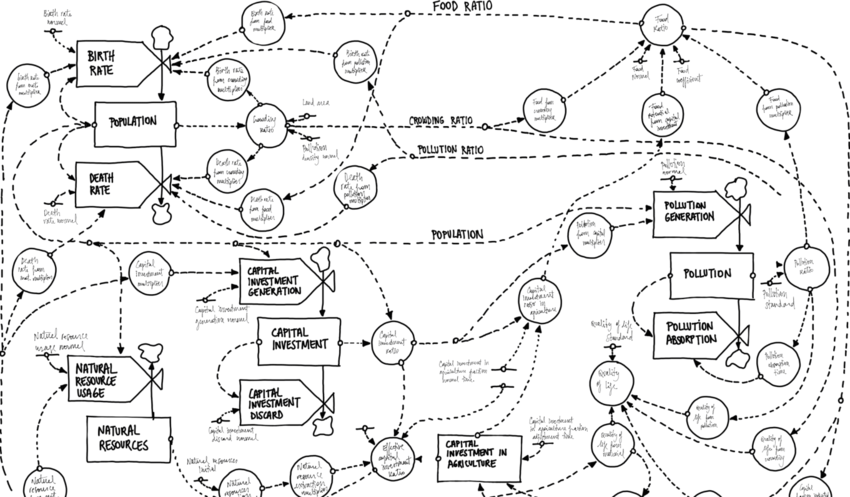
Although Forrester had a background in computer science, he became known for his work in industrial management and for developing the first sketch of the world dynamics model. Systems found in modern technology and the humanities, he found out, share many common ideas and principles, along with almost every other field of study.
In brief, Forrester's key views on system’s thinking concluded that:
- Every action we take is based on a model of assumptions
- Any system has two key concepts: the system's state and how it reacts to change
- Intuition and subjectivity and are crucial for understanding reality
- In general, difficulties arise not from the actions we take but from those we don’t

Yvon Chouinard (born 1938)
Supply chains and climate change
Yvon Chouinard has a deep connection to nature. He loves surfing, kayaking, and was a serious mountain climber. This love of the natural world led Chouinard to establish Patagonia, a multi-billion-dollar world leader in a sustainable fashion. He still loves the outdoors, but these days he prefers to fish.
Patagonia is constantly setting new benchmarks for quality and sustainability in clothing. We are a part of nature, says Chouinard, and considering nature was the source of the company's beginning, Patagonia has always been in business to protect it.
Chouinard believes climate change is the biggest battle we face and since 1986 committed either 1% of sales or 10% of profits to environmental protection. Supply chains are a significant factor in global emissions, and Patagonia actively initiates and supports changes to more sustainable methods.
Considering their impact, Patagonia believes the best way to make a system change is to begin at the grassroots level. Hence, they prefer to focus on environmental groups and those working directly with local communities.
In 2022, Chouniard, once again setting benchmarks for environmental stewardship, donated his $3 billion company to a trust. All future profits from Patagonia will be donated to a nonprofit and directed to fighting the ongoing climate crisis.
Yvon Chouinard, via Patagonia, uses systems thinking to create positive change in the textile industry by:
- Using regenerative cotton farming to reduce pests and preserve soil
- Influencing policy-makers through their network to educate leaders
- Directing money into the reforestation of the wilderness
- Sponsoring diligent and influential environmental activists
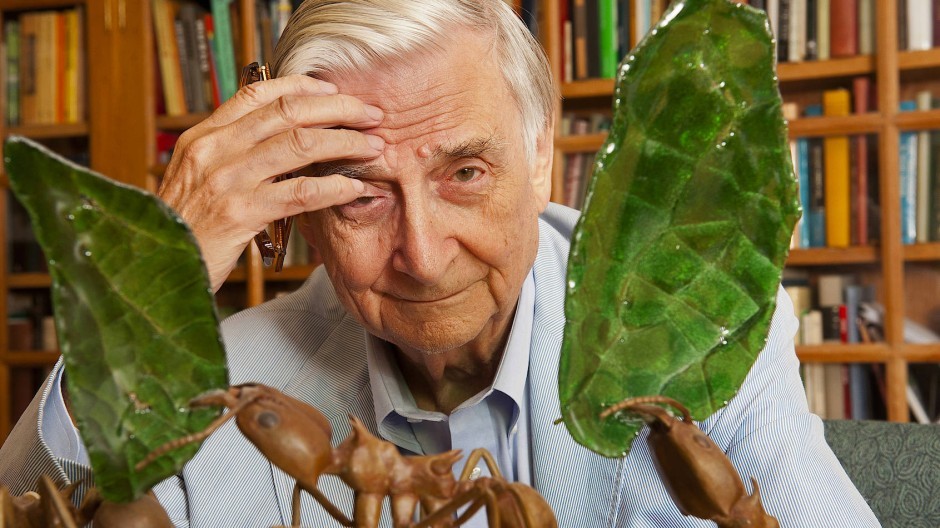
Edward O. Wilson (1929 - 2021)
Biology and social systems
Edward O. Wilson had many nicknames in his time. His environmental advocacy led to him being labeled the "father of sociobiology." Others called him "the father of biodiversity." Poignant names, but the moniker that stuck: "Ant Man."
Wilson was a prolific figure and pioneer in evolutionary biology and his specialty was myrmecology - the study of ants . He spent over 20 years researching the communication, castes, and behaviors of many species.
This unique insight into social systems led him to conclude that biological principles work the same in animal and human societies - 90% of behavior is attributed to our environment, the rest from our biology.
During his career, he wrote several acclaimed books on the meaning of life and humans' role in this planetary system. His most significant concern was habitat loss, over-consumption, and the widespread disregard for environmental degradation that could see us lose 50% of species within the next century.
As we lose species, said Wilson, we lose environmental stability and security. As natural services are eroded, productivity drops, making it harder to recover from shocks.
In his book Half-Earth, released in 2016, Wilson advanced the idea of setting aside half of the planet with protected corridors, linking vast wildlife reserves to preserve biodiversity. Only 15% of Earth is currently reserved and Wilson argued enhancing this would be the only way to create a viable existence for human and animal life to flourish.
While we have begun to make meaningful progress, and future advancements will help, Wilson believed we have the moral duty to start doing as much as we can today. The most responsible thing we can do, he said, was to become part of the planetary system rather than attempt to master it.
We can become part of the planetary system, rather than attempting to master it by acknowledging:
- All species, large or small, share similar behavioral traits
- Our environment, not biology, shapes a vast majority of our conduct
- Humanity's greatest and most difficult challenge is to preserve and protect Earth's systems
- To save the planet, we must see it as a sacred duty and strive toward it's protection
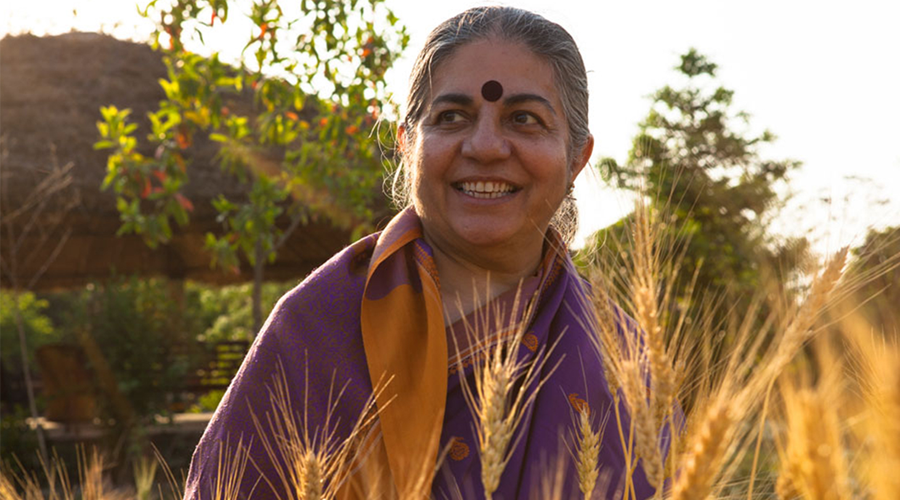
Vandana Shiva (born 1952)
Society, agriculture, and activism
Vandana Shiva's staunch anti-establishment stance has led her to be dubbed the 'rock star' of the anti-GMO movement. From the helm of her organization, Navdanya International, Shiva has been a leading proponent of the regenerative agriculture movement that aims to improve our modern agricultural systems and farmers' livelihoods.
To do this, she says, we must ensure farmers retain their seed and food sovereignty. However, with only five corporations controlling seed distribution and the expansion of GMOs, farmers are getting stripped of their autonomy.
In her prolific book, Monocultures of the Mind, she argues for a re-adoption of more traditional practices and advocates turning away from globalization and multinationals. They support "negative systems" of farming, meaning they use more resources than they produce - sometimes of a ratio up to 10:1. Monocropping misuses water, destroys soil quality and biodiversity, and has an insatiable craving for chemical inputs.
Independence and diversity, says Shiva, are vital to ensuring our bodies are more closely related to the "fabric of life" and our agricultural system can find an equilibrium.
We can help achieve this necessary balance by ensuring:
- Seeds and crops must be local and suited to environments
- There must be a balance in caring for the Earth, species, and ourselves
- Free people proactively shape food systems, enhancing biodiversity and livelihoods
- Food should be seen as sacred, the greatest gift of life
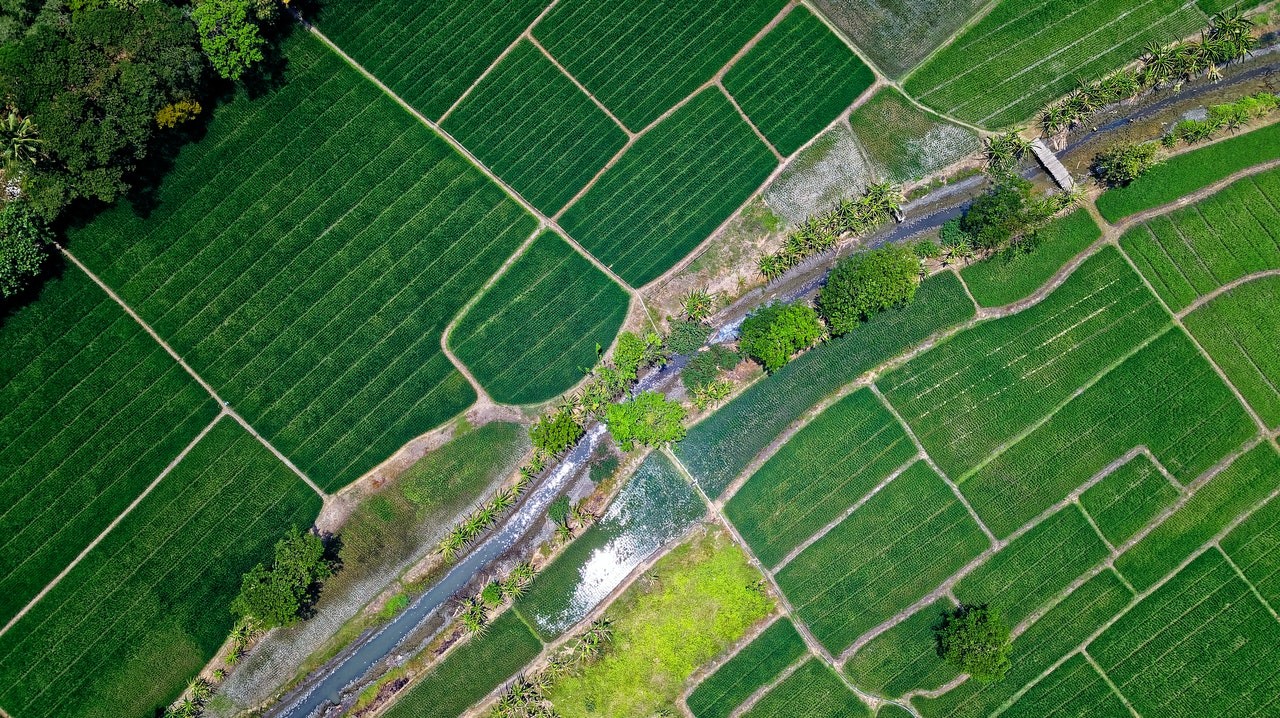
Recognizing systems is vital for sustainable development
Systems are all around us — in any industry, technology, or aspect of our natural and manufactured worlds. Understanding how these great thinkers see these systems helps us comprehend the world, recognize our positions, and how to best approach both old and new challenges alike.
Part 2 of this article has now been published. Find it here, and read all about Donella Meadows, Fritjof Capra, and others.
About our Systems Thinking work
Since our inception in 1999, we have used systems thinking as a way to address complex problems for strategy, urban planning, companies and industry. We are grateful for the work done by these heroes.
Click here to learn more about Except and our system's thinking training services
Follow this link to learn about Symbiosis in Development (SiD), Except's integrated open-source systems thinking framework.
Sept. 6, 2022



